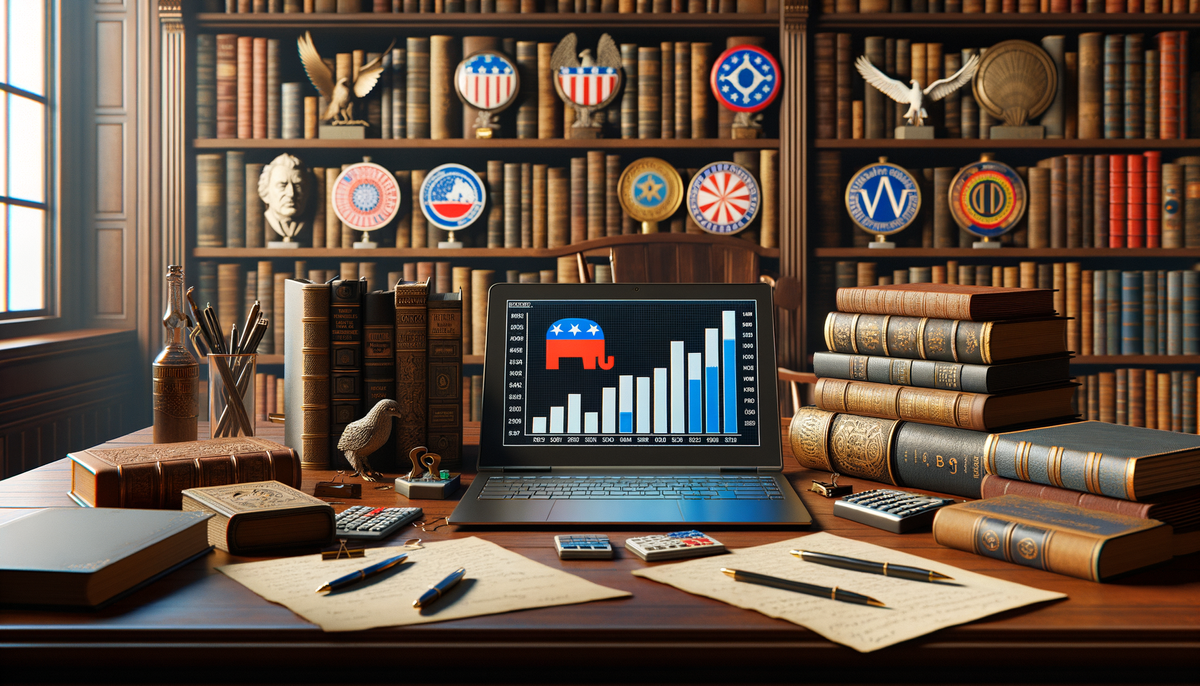Partisanship in Modern Politics: Unraveling the Complexities
Explore the complex dynamics of partisanship in modern politics, drawing insights from historical contexts and current trends, with a focus on actionable strategies for professionals.

Partisanship in Modern Politics: Unraveling the Complexities
In today's rapidly changing political landscape, partisanship remains a dominant force shaping the dynamics of political discourse and decision-making. Defined as strong loyalty to a political party and its agenda, partisanship significantly influences the interactions between political entities and their supporters. The divergence and sometimes outright conflict fueled by partisanship are not new phenomena, but their ramifications in contemporary settings pose unique challenges and opportunities. In this article, we delve into the intricate web of partisanship, examining its historical roots, current manifestations, and its impact on political structures and voter alignments. Drawing from research findings and recent electoral examples, such as the Dallas City Council elections, we aim to unpack the multifaceted nature of partisan politics today.
Origins and Definitions
Partisanship has been an intrinsic part of democratic processes since the inception of political parties. The United States, which witnessed the emergence of its first political groups, the Federalist and Republican parties in the 1790s, offers a historical lens through which we can understand partisanship's evolution. A partisan is traditionally seen as a loyal supporter of a party's platform, often resisting compromise and maintaining an adversarial stance towards opposing parties.
Manifestations of Partisanship
Partisanship goes beyond mere support for a political party; it permeates various facets of governance and the electorate:
- In Political Leaders and Officeholders: Hyperpartisanship is notorious for breeding hostility and institutional deadlock. Leaders often engage in strategies that favor party interests, even at the expense of broader national priorities. Such practices can escalate into forms of institutional warfare, where governmental entities may be misused to suppress opposing ideologies.
- In Government Institutions: Political polarization can hinder legislative efficiency, as seen in institutions like the US Congress. An environment of extreme partisanship often stalls meaningful dialogue, reducing the capacity to pass substantial policy changes.
- Among Voters: The emotional and psychological ties voters form with political parties contribute to the polarization evident in many modern democracies. An increasing number of voters identify strongly with conservative or liberal ideologies, consolidating the divide.
Theoretical Perspectives
Examining partisanship through the lens of Marxism-Leninism provides additional insights. Vladimir Lenin, a pivotal figure in this ideology, argued that true objectivity is elusive in class-based societies. This perspective suggests that acknowledging one's partisanship can be more transparent and ideologically honest.
Consequences and Concerns
While partisanship is an accepted aspect of political systems, its extreme expressions can threaten the democratic fabric. By fostering misperceptions and creating legislative gridlock, extreme partisanship divorces governance from its purpose—serving the public interest. Historical instances, such as the 1850s partisan conflicts in the US that preluded the Civil War, demonstrate the destructive potential of unchecked partisan divisions.
Modern Context and Practical Takeaways
In today's settings, partisanship often serves as a critique when political actions prioritize party success over public welfare. As political landscapes evolve, understanding and addressing the roots and effects of partisanship becomes crucial for political professionals and business leaders alike.
For those navigating these complexities, several strategies can mitigate negative outcomes:
- Encourage bipartisan dialogue to find middle ground in policymaking.
- Foster public awareness about the importance of balanced partisanship to enhance critical thinking.
- Support initiatives that promote transparency and hold party members accountable for their actions beyond mere party loyalty.
Newsomix.com is committed to providing insights and strategic perspectives on partisanship and its broader implications. We invite you to explore further into the nuances of partisan politics with us, offered through a deep dive into our diverse resources.
Conclusion and Call to Action
Partisanship continues to shape the political arena, presenting both challenges and opportunities for growth and reform. Professionals seeking to navigate this complex landscape will find value in fostering collaborative environments, where dialogue transcends party lines for the common good. Join us at Newsomix.com as we dissect these pivotal issues and explore actionable paths forward.




